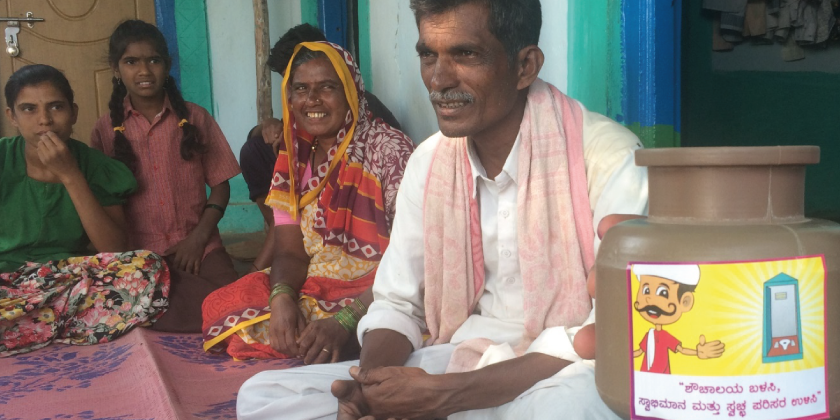Department Environmental Social Sciences
Promoting latrine use in rural India

Project description
Design, Implementation and Evaluation of a Behavior Change Campaign to Promote Latrine Use in Rural Karnataka, India
Goals of the project:
The purpose of this project is to develop and test acceptable, feasible and low-cost interventions to promote latrine use in rural India. The interventions are selected using the risks, attitudes, norms, abilities and self-regulation (RANAS) approach to systematic behaviour change. Behavioural factors steering latrine use are identified during a formative pre-study. To change the identified behavioural factors, specific behaviour change techniques (BCTs) are selected from the BCT catalogue of the RANAS approach. Suitable communication channels for these BCTS are identified based on the preferences of the community from the field-data collected.
“What works and why?” best summarizes the research questions of this project.
WHAT WORKS: The principal aim of this project is to quantify to which extend the intervention increased latrine use of beneficiaries.
WHY: The second aim of this impact assessment is to quantify the mechanisms of action of the tested interventions. Using mediation models, we will be able to determine which behavioural factors were mainly changed by the interventions, and how those changes resulted on behaviour change.
Interventions are evaluated using a stratified cluster-randomized controlled trial (cRCT) with one intervention arm and one control arm to evaluate the developed behaviour change interventions. The cRTC will be implemented in Raichur, Karnataka in 120 villages in total.
